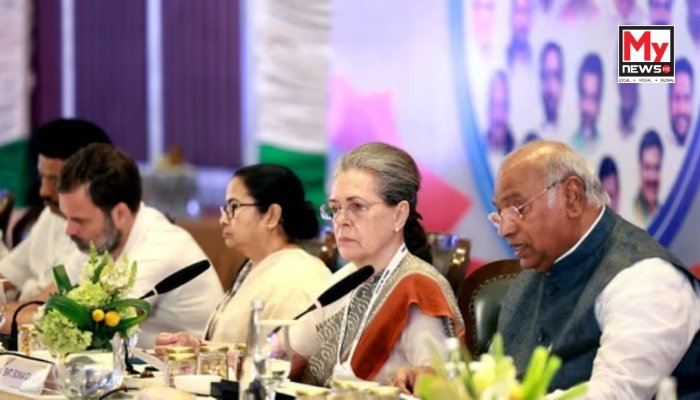
India’s Political Spectrum Unites After Operation Sindoor, Backing Armed Forces and National Security Goals
National: A powerful sense of political solidarity swept across party lines as leaders from across India’s political spectrum came together following Operation Sindoor — a decisive retaliatory strike by the Indian armed forces targeting terror camps in Pakistan and Pakistan-occupied Kashmir.
Convened by Defence Minister Rajnath Singh, the all-party meeting was held in the aftermath of the Pahalgam terror attack, which left 26 civilians dead, and served as a platform for briefing political stakeholders on the objectives and outcomes of the cross-border offensive.
The briefing revealed that the operation had targeted key terrorist infrastructure in Bhawalpur and Muridke, regions long associated with extremist outfits like Jaish-e-Mohammed and Lashkar-e-Taiba. While specifics of the mission remained classified, leaders were assured of the precision and impact of the surgical strikes. The meeting was marked by strong bipartisan consensus, with representatives from both ruling and opposition parties expressing unequivocal support for the armed forces.
Among the vocal supporters was AIMIM chief Asaduddin Owaisi, who applauded the Centre and the military for their bold action. He also emphasized the need to acknowledge civilians killed in Pakistan’s ceasefire violations in Poonch as victims of terrorism, calling for government compensation and rehabilitation for their families. Raising an additional concern, Owaisi sought clarification from the Indian Air Force over reports of a Rafale jet being downed—stories that, if left unaddressed, could risk denting morale. He further urged the government to lead an international push to designate The Resistance Front (TRF) as a global terrorist organisation and to lobby for Pakistan’s re-listing on the Financial Action Task Force (FATF) grey list.
From the Congress, both Rajya Sabha Leader of Opposition Mallikarjun Kharge and Lok Sabha LoP Rahul Gandhi reaffirmed their party’s full backing. Kharge acknowledged the sensitive nature of some intelligence that could not be disclosed and assured the government of Congress’s unity in the national interest. Gandhi echoed the sentiment, signalling that party politics would not get in the way of collective security imperatives.
Union Minister Kiren Rijiju praised the maturity and unity displayed during the meeting, highlighting that all parties offered constructive feedback while saluting the courage of India’s armed forces. “The government is not here merely to govern but to defend the sovereignty of this nation,” he remarked.
Regional support also came from BJD MP Sasmit Patra, representing Odisha Chief Minister Naveen Patnaik. He described Operation Sindoor as a demonstration of “courage, precision, and professionalism” and reaffirmed the BJD’s commitment to supporting all actions necessary to safeguard national interests.
As the dust settles on one of India’s most significant military responses in recent memory, the country faces ongoing threats from across the border, including increased shelling in border districts. Yet, amid these tensions, the rare and resounding political consensus forged in the wake of Operation Sindoor underscores India’s unwavering resolve in the face of terror.
READ MORE: Six Dead in East Jaintia Hills as Mushroom Poisoning Cases Rise Amid Monsoon Foraging
